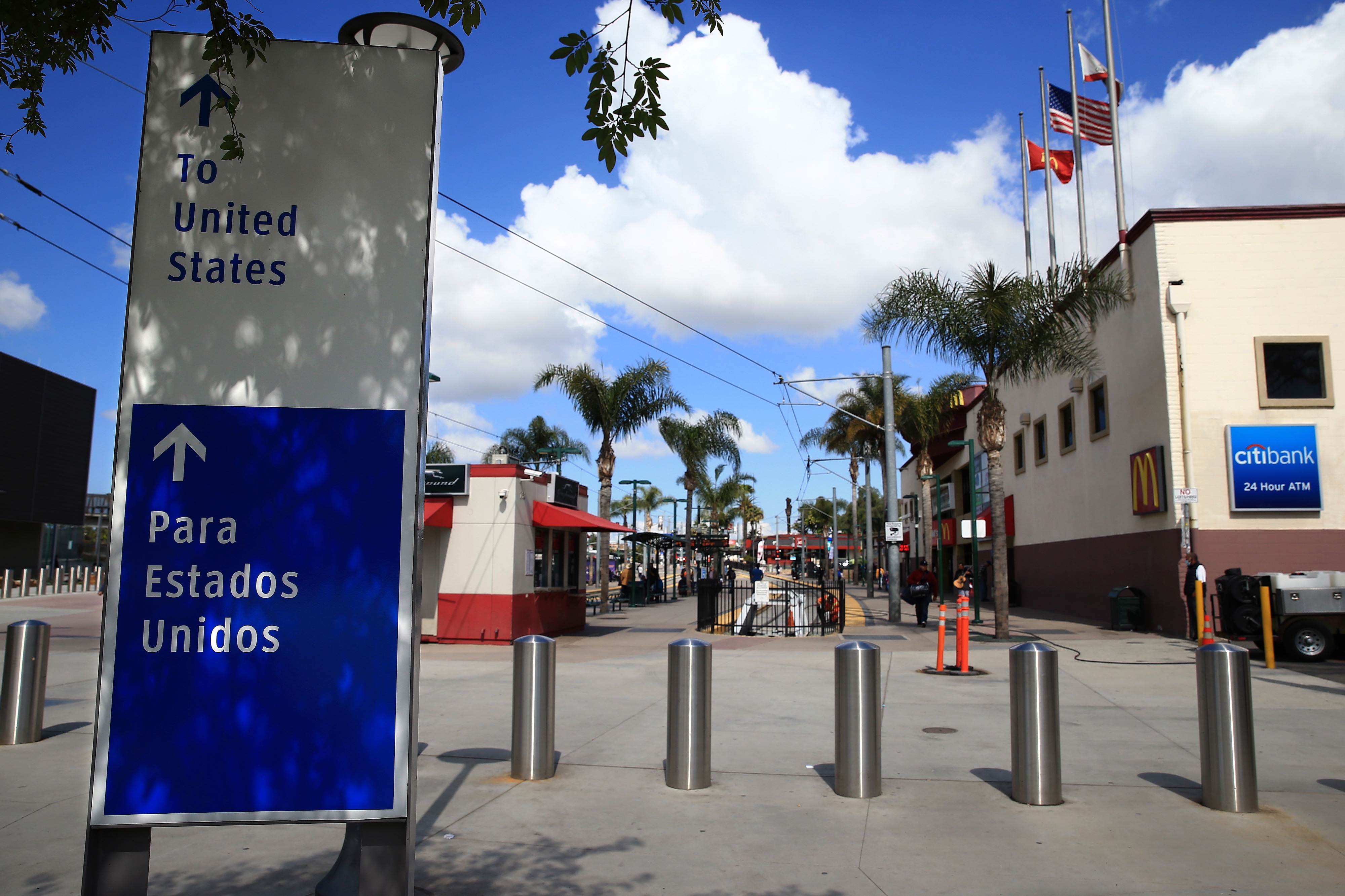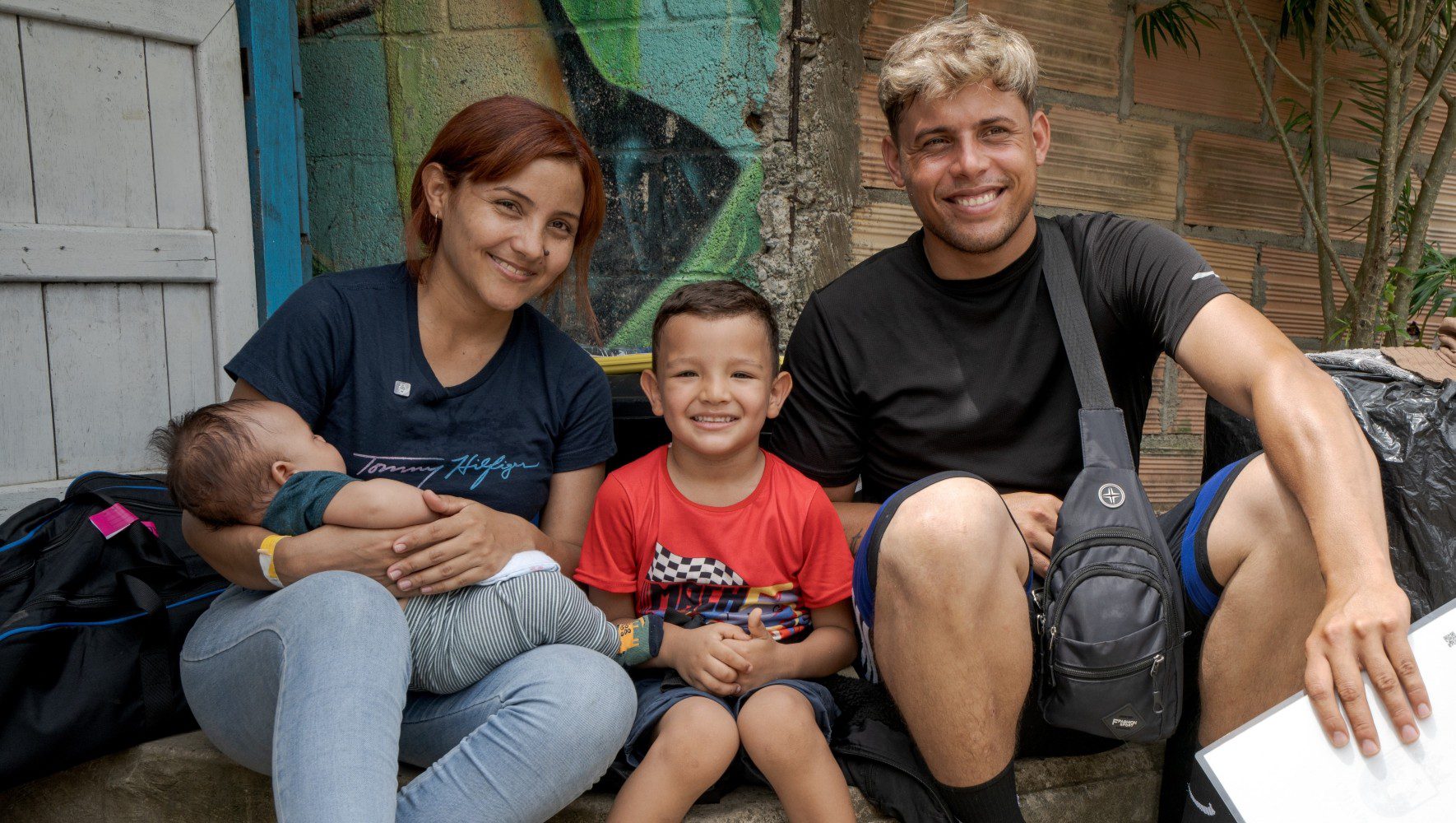An Asylum Victory Four Years In The Making
By Max J. Rosenthal, HIAS.org
Oct 19, 2020

The San Ysidro port of entry in San Diego, Calif., pictured on March 21, 2020.
(Sean M. Haffey/Getty Images)
For one Salvadoran family, Aug. 13, 2020, marked the end of a four-year-long escape from deadly violence at home to safety in the United States. That’s when an immigration judge in Baltimore granted asylum to Juana*, which will allow her and her family to remain permanently in the United States.
“She was crying and she was thankful and they were happy,” remembered Andres Meraz, the HIAS attorney who represented Juana. “They knew what it meant.”
It meant that years of fear and hardship — running from gangs in El Salvador, traveling across multiple countries, enduring family separation, and then living in limbo in Maryland — had resulted in a happy end. But such endings are increasingly rare, as the Trump administration has taken numerous steps to gut the asylum system.
Juana, her husband, Jaime*, and their three children never intended to leave their home in El Salvador. They had lived all their lives in a neighborhood named after Jaime’s family, a well-known local clan. “It was a large family. They had money, they had businesses, they had stuff going on,” said Meraz.
That prosperity attracted attention from gangs, including MS-13. In early 2016, they demanded extortion money from Jaime’s sister, who refused. In retaliation, they killed her son. “They showed up in the middle of the night and they just shot him,” said Meraz. “Shot him in the chest and in the head.”
It was only the beginning. Six months later, the gang murdered Jaime’s sister. Jaime’s father, who had talked to the police about the killing, began to receive death threats and notice men staking out his house. Jamie decided it was time to leave.
For a year, the family lived safely in another area of El Salvador. But in late 2017, MS-13 returned. A gang member arrived at Jaime’s new home and told him MS-13 knew about his family connections. “Jaime’s family didn’t quite have the same resources as other family members, but they were associated with those family members,” said Meraz. If Jaime didn’t start paying him money, the man said, he would be murdered as well.
When police arrived to arrest the gangster, the threat became a promise. “As the police are arresting this guy, he’s saying, ‘I’m going to be out within three days and you guys are all going to die,’” said Meraz. Once again, it was time to flee.
This escape eventually took Jaime and Juana’s family to Mexico, but the country’s own gang and crime problems were too familiar. If they wanted to be safe, they decided, they would have to go the United States.
Their timing could not have been worse. Juana showed up at the San Ysidro border crossing in Tijuana on May 18, 2018. The Trump administration's border crackdowns and stringent new immigration policies were in full effect, and Juana’s chance of winning asylum seemed slim.
“I think that was the height of the fight against immigrants,” said Meraz. “You had stricter rules for these interviews at the border, you had kids getting separated from their parents … I would say that was probably one of the hardest times for people to come in here.”
Juana and Jaime were indeed separated from their children. But Juana passed her “credible fear” interview — the method by which asylum officers determine if an asylum seeker’s fear of persecution seems legitimate — and the family was quickly reunited. Later, in October 2018, they approached HIAS for help preparing and arguing their case.
For the past two years, Juana, Jaime, and their children have lived in Silver Spring, Md., working, attending school, and becoming part of the community. All the while, however, their asylum case hung over their heads. “She’s had uncertainty for two years,” said Meraz of Juana. “You watch the news all the time and you’re hearing, ‘Hey, the president doesn’t like immigrants, he’s doing everything to make sure people don’t come in here.’ … It’s tough.”
Now, finally, the uncertainty is gone. Thanks to Juana’s success, Jaime and their children can receive asylum status through her. Juana herself can apply for permanent residency next August. It’s a much-needed bit of good news about an immigration system that seems ever more hostile to those in need of refuge.
“It’s inspiring to see our clients persevere in the face of such adversity, to tell their story and their truths and to be justly rewarded for it,” said Stephen Brown, HIAS’ supervising attorney in Silver Spring. “It’s such a privilege to join them in their struggle for freedom.”
*Pseudonyms used for clients’ protection.



